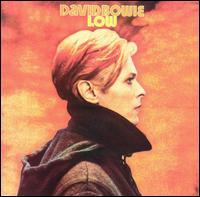
- Format: FLAC

Following through with the avant-garde inclinations of Station to Station, yet explicitly breaking with David Bowie's past, Low is a dense, challenging album that confirmed his place at rock's cutting edge. Driven by dissonant synthesizers and electronics, Low is divided between brief, angular songs and atmospheric instrumentals. Throughout the record's first half, the guitars are jagged and the synthesizers drone with a menacing robotic pulse, while Bowie's vocals are unnaturally layered and overdubbed. During the instrumental half, the electronics turn cool, which is a relief after the intensity of the preceding avant pop. Half the credit for Low's success goes to Brian Eno, who explored similar ambient territory on his own releases. Eno functioned as a conduit for Bowie's ideas, and in turn Bowie made the experimentalism of not only Eno but of the German synth group Kraftwerk and the post-punk group Wire respectable, if not quite mainstream. Though a handful of the vocal pieces on Low are accessible — "Sound and Vision" has a shimmering guitar hook, and "Be My Wife" subverts soul structure in a surprisingly catchy fashion — the record is defiantly experimental and dense with detail, providing a new direction for the avant-garde in rock & roll.